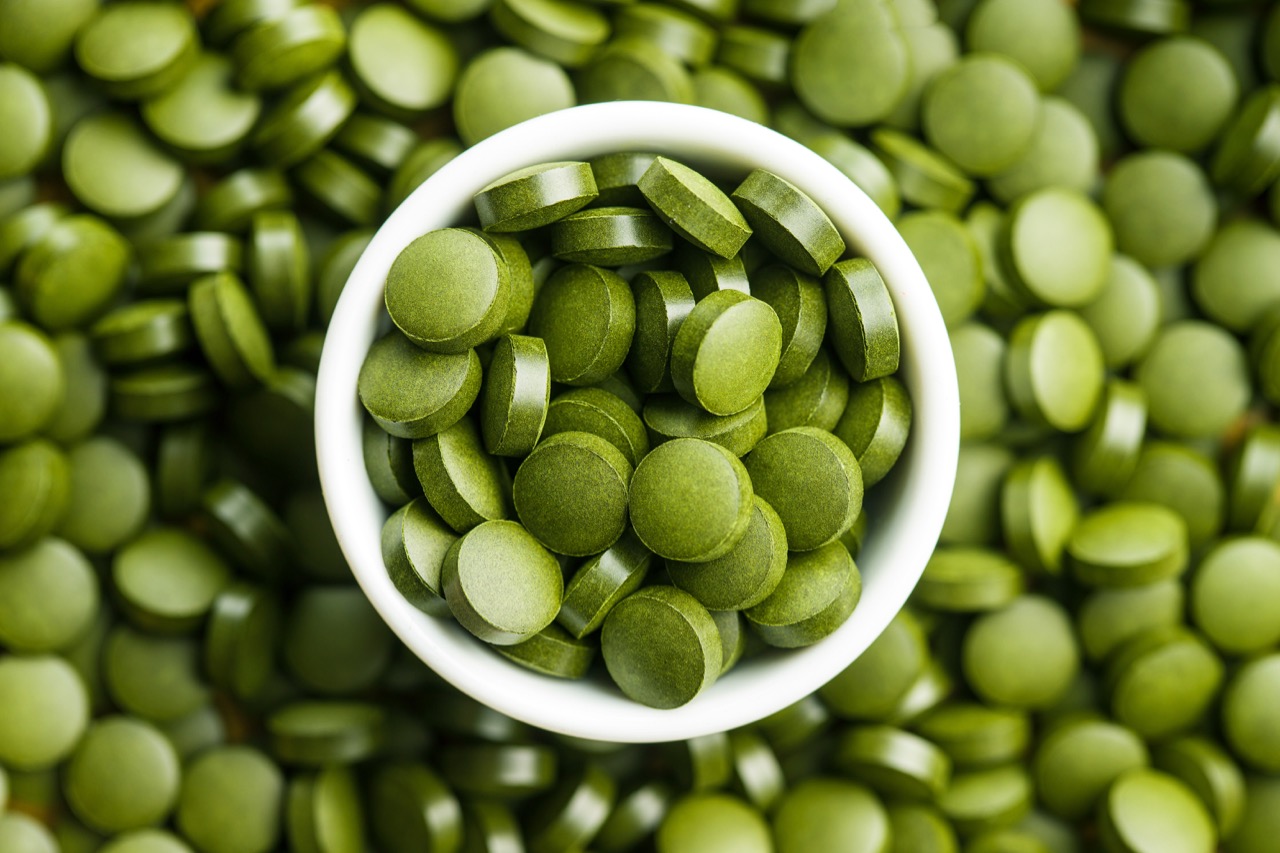The Definitive Guide to Chlorella & Health Benefits
There is a lot of buzz around green superfoods particularly chlorella and spirulina. Some claims are probably overhyped but there is sufficient to support its use for a number of health benefits. Here’s an overview of chlorella supplements, use and potential health benefits.

What is Chlorella?
Chlorella is a green unicellular microalgae with biological and pharmacological properties known to be important for human health. While there are over 30 different species – Chlorella vulgaris and Chlorella pyrenoidosa are two species most frequently used and subject to most research.
Nutritional Profile
While the exact nutritional content will be influenced on growing conditions and will vary from product to product, chlorella is certainly a nutrient dense food.
Chlorella contains 50-60% protein with all the nine essential amino acids and around 13% fibre. It is a useful source of iron and vitamin C (which facilitates iron absorption). It also provides small amounts of other nutrients including B vitamins, magnesium, zinc, copper, potassium and calcium. While it does contain traces of B12 there is debate with regards to bioavailability.
Like other algae chlorella is a source of omega 3 fatty acids and provides a number of phytonutrients including lutein, zeaxanthin and related carotenoids and a phytonutrient called C.G.F. (Chlorella Growth Factor).
Clinical Applications
Biotransformation
Chlorella appears to act as a functional detoxifier assisting the body’s natural ability to clear toxins. While mostly animal studies, chlorella does appear to support the elimination of certain heavy metals (mercury, lead, cadmium). Other studies indicate potential for protection against exposure to polycyclic aromatic hydrocarbons originating from tobacco smoke, diesel fumes, smoked foods etc. In addition chlorella has been shown to reduce levels of compounds such as dioxins, a known hormone disrupter in breast milk. So chlorella does seems to be good at removing fat soluble or metal toxins.
Immune Support
A number of animal and human studies highlight chlorella’s ability to support immune health and in particular enhancing levels of Secretory IgA. Secretory IgA (SIgA) plays an important role in the protection and homeostatic regulation of intestinal, respiratory, and urogenital mucosal epithelia separating the outside environment from the inside of the body. This primary function of SIgA is referred to as immune exclusion, a process that limits the access of numerous microorganisms and mucosal antigens to these thin and vulnerable mucosal barriers. Chlorella supplementation has also been shown to improve immune response through an increase in NK Killer cell production. However studies are mixed. For example, one study demonstrated improved immune response to the influenza vaccination in those participants aged 50-55 but not those over 55 years.
Cardiovascular Health
Several studies have suggested that chlorella supplementation of 5-10g daily may improve a number of blood lipid risk factors including total and LDL cholesterol and triglycerides. Similarly doses of 4g daily for 12 weeks resulted in a reduction in moderately high blood pressure and may be helpful for hypertension while other studies suggest chlorella may reduce arterial stiffness.
With regards to blood sugar, preliminary studies indicate supplementation may lower fasting blood sugar and improve insulin sensitivity particularly in those with non-alcoholic fatty liver disease.
Antioxidant Support
Chlorella contains a number of antioxidants including chlorophyll, vitamin C and carotenoids. These may help reduce the production of advanced glycation end products (AGEs) which have been associated with the complications of diabetes. In one human study chlorella supplements increased antioxidant levels in chronic cigarette smokers, who are typically at a higher risk of oxidative damage.
Aerobic Performance
Another potential benefit of regular supplementation with chlorella is its effect on aerobic endurance. One study showed supplementation of 15 tablets twice daily for 4 weeks improved VO2max and aerobic endurance in young adults.

Supplementation
As with all supplements it is important to check for interactions with existing medications. Dosage will vary depending on its use. If you are new to chlorella then it is normally recommended you start with a low dose and gradually build up. Studies have demonstrated benefits from between 1g to 5-10g daily. Quality is important – reputable brands will state growing conditions and should be able to provide nutritional information.

